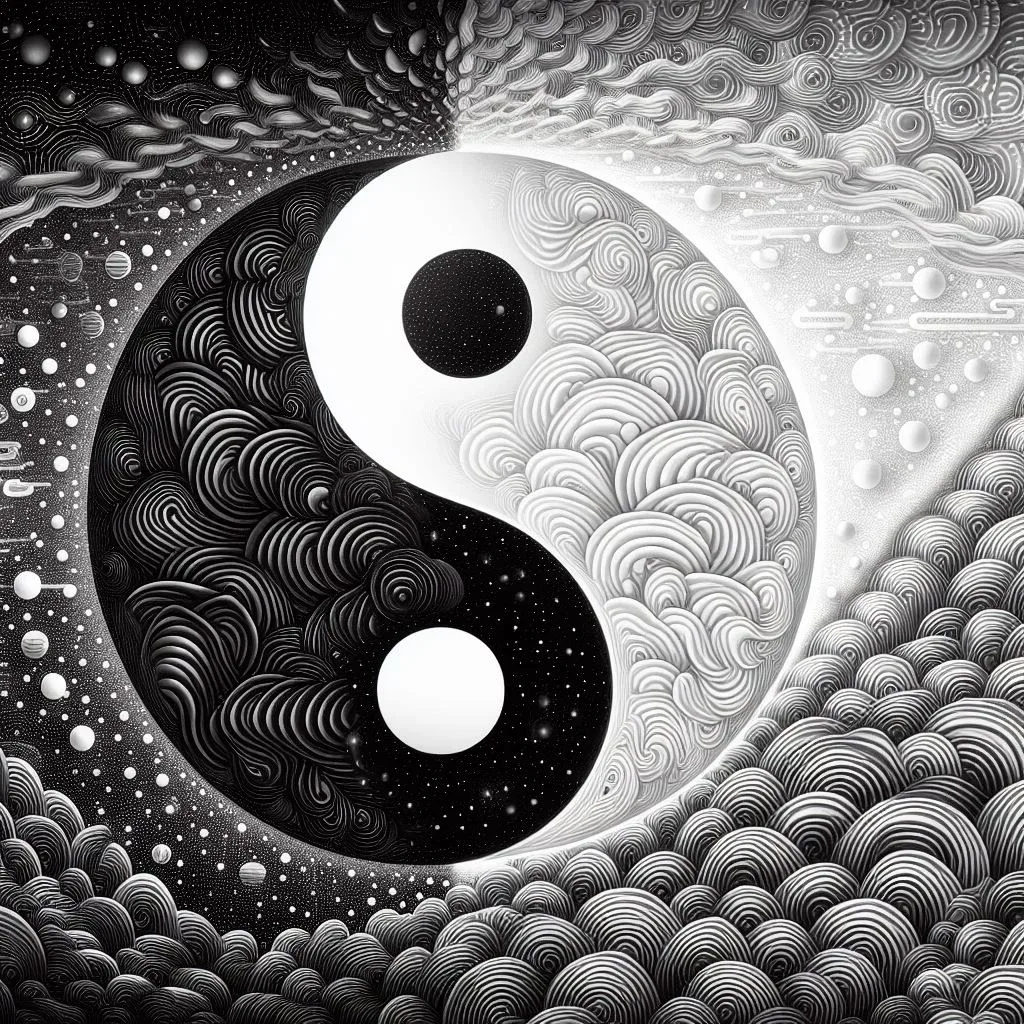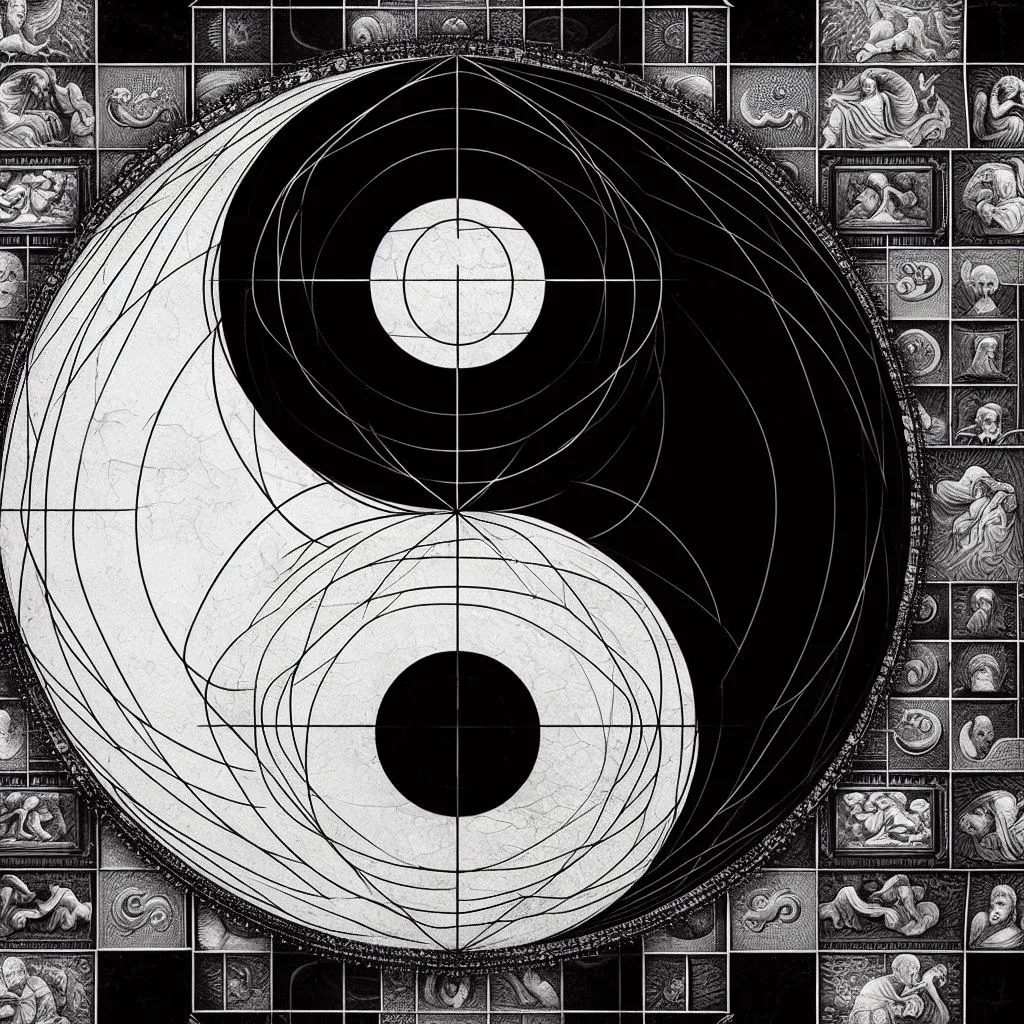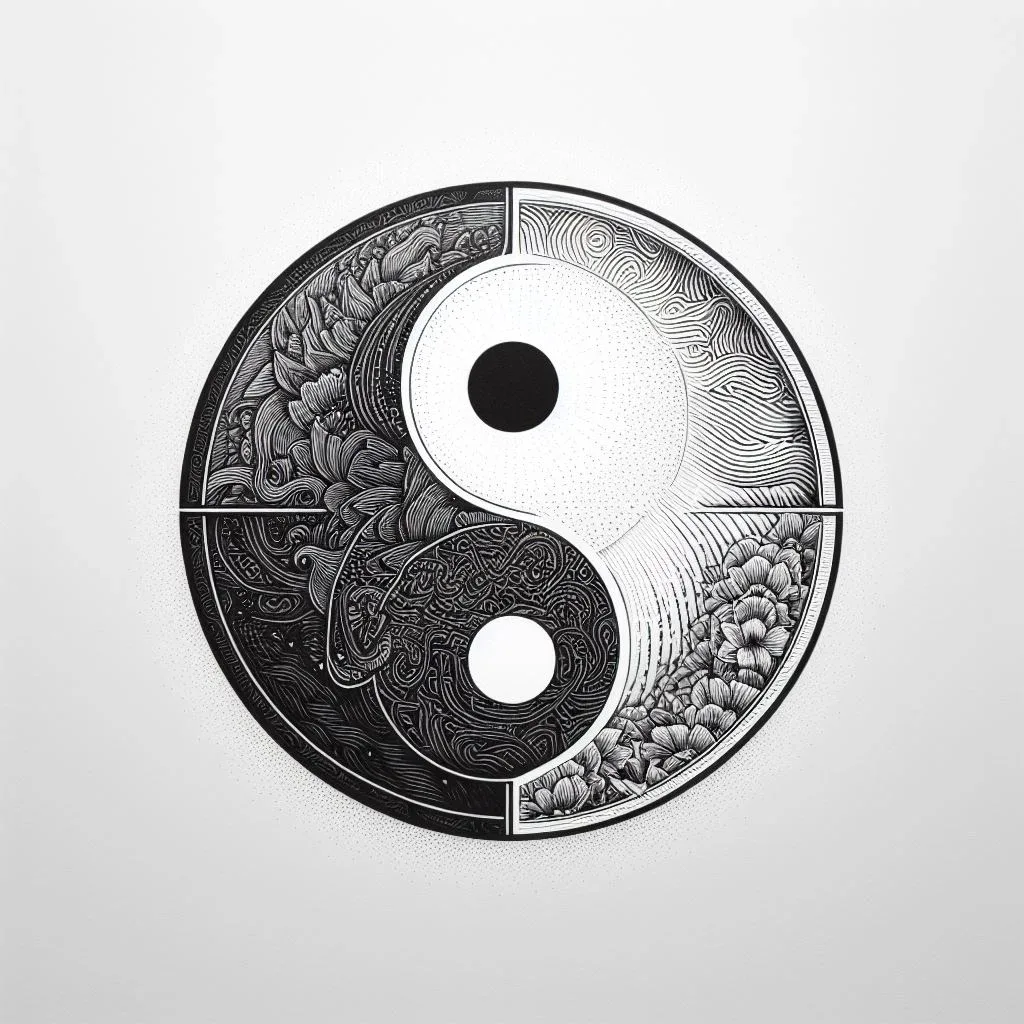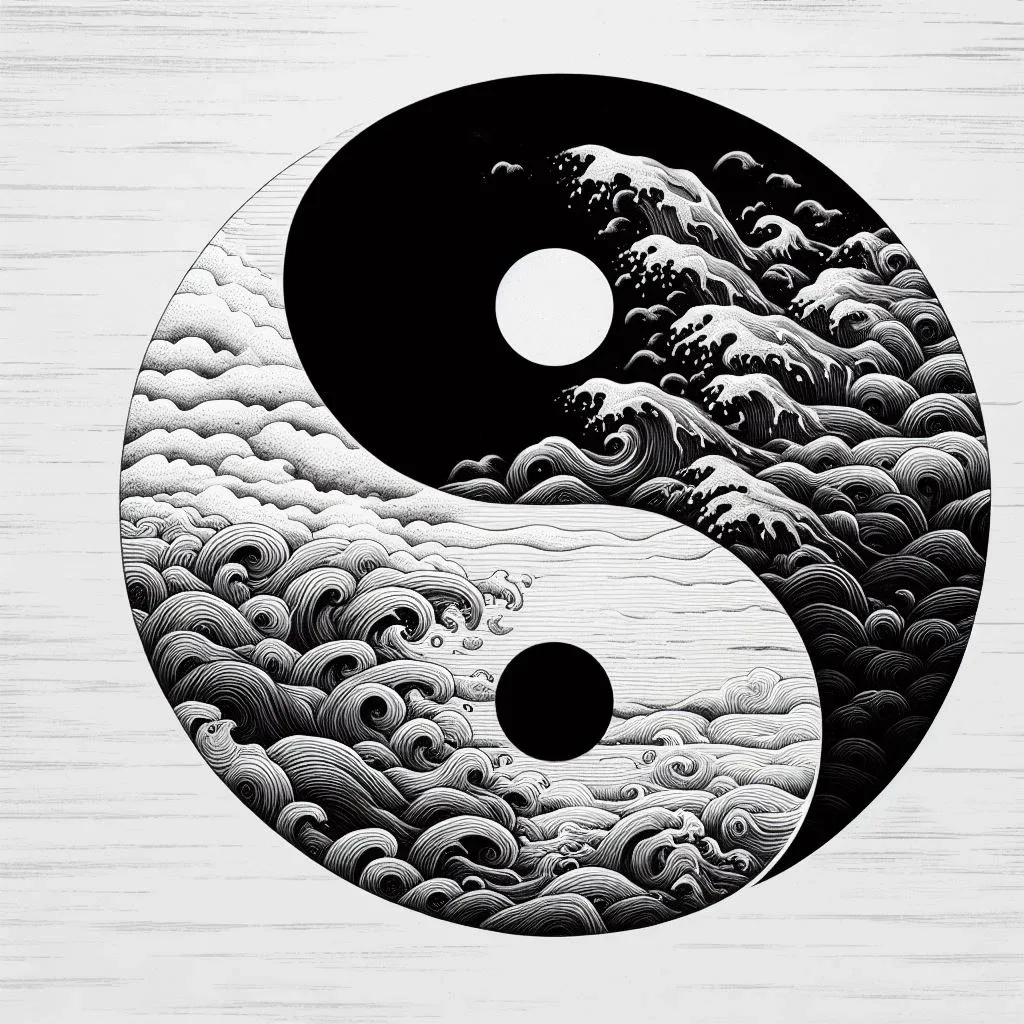Duality is a concept intrinsic to human nature and the understanding of reality. In various philosophies and belief systems around the world, this duality is represented and explored in different ways. However, one of the best-known examples that addresses duality is the concept of Yin Yang in Chinese philosophy. In this article, we will explore the duality inherent in the concept of Yin Yang, analyzing how this duality is reflected in various philosophies and how it can be applied to everyday life.

The Essence of Yin Yang
Yin Yang is a fundamental concept in Chinese philosophy, especially in Taoism. It represents the duality of opposing forces that are interdependent and complementary. Yin is associated with characteristics such as darkness, passivity, feminine and cold, while Yang is related to light, activity, masculine and heat. However, the key to understanding Yin Yang lies in understanding that these opposing forces are not separate, but rather interconnected and in constant interaction.
Duality in Taoism
In Taoism, Yin Yang duality is considered to represent harmony and balance in the universe. Taoism emphasizes the importance of not resisting change and flowing with it, recognizing that life is a constant interaction between Yin and Yang. This Taoist philosophy can be applied to everyday life, encouraging people to find balance in their actions by recognizing when it is time to be active (Yang) and when it is time to rest and reflect (Yin).
Duality in Other Philosophies
Although Yin Yang is a notable example of duality in philosophy, this idea of opposing and complementary forces is found in many other philosophical traditions around the world. In Western philosophy, for example, Plato discussed the duality between the world of ideas and the sensible world. Aristotle also explored the duality between potency and act.

Furthermore, duality is a central feature in several religions, such as Zoroastrianism, which emphasizes the eternal struggle between good (Ormuzd) and evil (Ahriman). In Hinduism, duality is represented by the deities Shiva (destruction) and Vishnu (preservation).
Application of Duality in Everyday Life
Duality is not just an abstract philosophical concept, but something that can be applied to everyday life. Here are some ways to apply duality in your life:

1. Work-Life Balance
Just as Yin Yang represents a balance between active Yang and passive Yin, it is important to find balance between work and personal life. Recognize when it's time to be productive and when it's time to relax and recharge.
2. Duality of Emotions
Human emotions are often a duality of opposites, such as joy and sadness, love and hate. Accepting this duality and allowing yourself to feel all emotions is essential for emotional health.
3. Duality in the Relationship
Interpersonal relationships often involve dualities, such as the need for autonomy (Yang) and the need for closeness (Yin). Understanding and respecting these dualities can strengthen relationships.
Conclusion
Duality is a fundamental concept that is present in various philosophies and cultures around the world. Yin Yang in Chinese philosophy is a notable example of this concept, representing the duality of opposing forces that complement each other. This duality can be applied to everyday life, promoting balance, acceptance of emotions and strengthening interpersonal relationships.
As we explore the diverse ways in which duality is represented and understood, we can gain a deeper understanding of the complexity of life and the importance of finding balance in a world of opposites.

Overcome obstacles with the stoic mindset of success
Learn how to develop a stoic mindset to face life's challenges with resilience, courage and determination, achieving success in all aspects.
BUY NOW
FAQ – Duality in Philosophy and Life

- What is duality in Yin Yang philosophy? Duality in Yin Yang philosophy represents the interdependence and complementarity of opposing forces, such as Yin (darkness, passivity) and Yang (light, activity). These forces are in constant interaction and balance.
- How does duality relate to Taoist philosophy? Duality is fundamental in Taoism, where the balance between Yin and Yang is seen as the key to harmony and the flow of life. Taoism emphasizes the importance of not resisting change and flowing with it.
- Besides Yin Yang, where else do we find duality in philosophy? Duality is a concept present in several philosophies, such as Plato's dualism between the world of ideas and the sensible world, or the duality between good and evil in Zoroastrianism.
- How can I apply the concept of duality in everyday life? Duality can be applied in everyday life through balancing work and personal life, understanding and accepting emotions and strengthening interpersonal relationships.
- Does duality mean everything is dual or binary? No, duality does not imply that everything is strictly dual or binary. It recognizes the interaction of opposing forces, but reality is often complex and varied.
- How does duality help us understand the complexity of life? Duality helps us understand that life is a constant balance between opposites, and that this complexity is an intrinsic part of the human experience.
- Is duality unique to Chinese philosophy? No, duality is a concept present in various philosophies and cultures around the world. Each culture has its own interpretation of duality.
- Does duality imply that we should always seek balance? Seeking balance is a common interpretation of duality, but it does not necessarily mean that we should seek balance in all aspects of life. It depends on the specific philosophy and culture.
We hope this FAQ has clarified your doubts about duality in philosophy and life. If you have any further questions or would like to explore this concept further, please feel free to do so.




